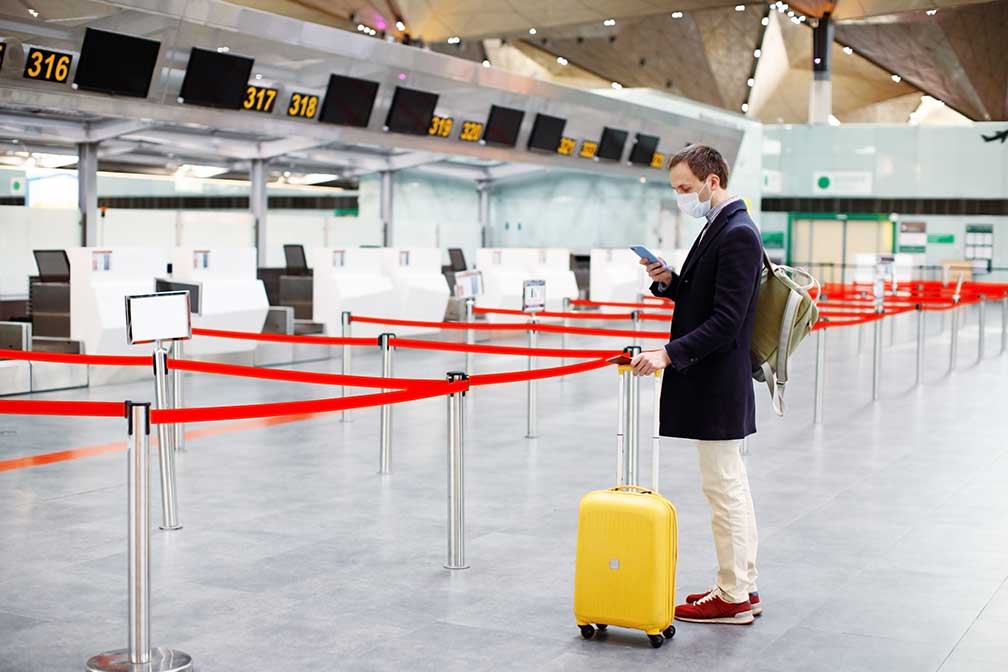Fake COVID-19 test results are becoming more prevalent, providing clinical laboratories with unique insights into unmet testing needs
As the COVID-19 pandemic persists and hotspots emerge, one of the areas most impacted is travel. People who are traveling are at a greater risk of contacting COVID-19 positive individuals and developing an infection. Traveling also contributes to the spread of COVID-19 into areas where it is not prevalent.
The dangers of the increased spread of COVID-19 has led to many countries and states restricting travel. In the earlier days of the pandemic, travel was in some circumstances almost completely halted. With the world learning to live with the constant threat of COVID-19, these travel restrictions are being more relaxed, and local governments are attempting to reduce the spread of COVID-19 by using testing and quarantines.
Many states and counties now require that travelers provide a recent COVID-19 test proving that they are negative for the virus. By providing proof that they are COVID-19 negative, travelers are permitted, in many cases, to avoid lengthy quarantines and the disruptions that these quarantines can cause to their travel plans.
However, relying heavily on COVID-19 tests creates a new problem. Travelers who are asymptomatic are finding difficulty in obtaining the COVID-19 testing that they need to prove they are negative. COVID-19 testing is typically needed within a specific timeframe prior to traveling, often within three days or one day prior to departing. PCR tests have a turnaround time that makes it difficult for travelers to obtain testing that is performed close enough to departure and provide results before they leave. Adding to the complexity of this problem is that asymptomatic individuals often find obtaining COVID-19 testing more difficult under normal circumstances.
The difficulty in obtaining timely COVID-19 testing for travel while asymptomatic has led to the emergence of fake, black market negative COVID-19 test results. In early November, seven individuals were arrested in Paris, France, for selling false certificates of negative coronavirus tests at Charles de Gaulle Airport. These fake certificates were being sold to travelers for 150 to 300 euros ($180 to $360).
The use of fake COVID-19 test results for travel is not an isolated incident. There are reports of fraudulent COVID-19 tests being used for travel in the UK, Brazil, Pakistan, and other places. These fake test results undermine the safeguards that have been put in place to reduce the spread of COVID-19. They also create uncertainties in the validity of test results.
Is a Unique COVID-19 Travel Testing Market Developing?
There are several implications that a market for fake COVID-19 test results may have for clinical laboratories. The first is that these fake COVID-19 tests are the response to a void in the COVID-19 testing market. The difficulty in getting testing for travel while asymptomatic—and getting valid proof of COVID-19 test results within the narrow timeframe needed—may provide a unique opportunity for clinical laboratories that can fill this niche.
Another consideration for clinical laboratories is the possibility that COVID-19 test reporting mechanisms may be duplicated or faked. Labs may benefit from building safeguards that allow those requiring test results to verify the veracity of the results that labs provide.
Clinical laboratories that are in a position to support verified COVID-19 results can also consider partnering with ports or airlines that require COVID-19 testing, to serve as a reliable test result provider. Working directly with specific clinical labs could allow those entities that require proof of test results to have better confidence in the documentation they are presented by travelers.
While fake COVID-19 test results can be dangerous, they also provide clinical laboratories with opportunities to better understand and perhaps fill the unmet needs of the COVID-19 travel testing market.

—By Caleb Williams, Editor, COVID-19 STAT
Related Resources:
The Washington Post: What to know about getting tested for the coronavirus to travel







